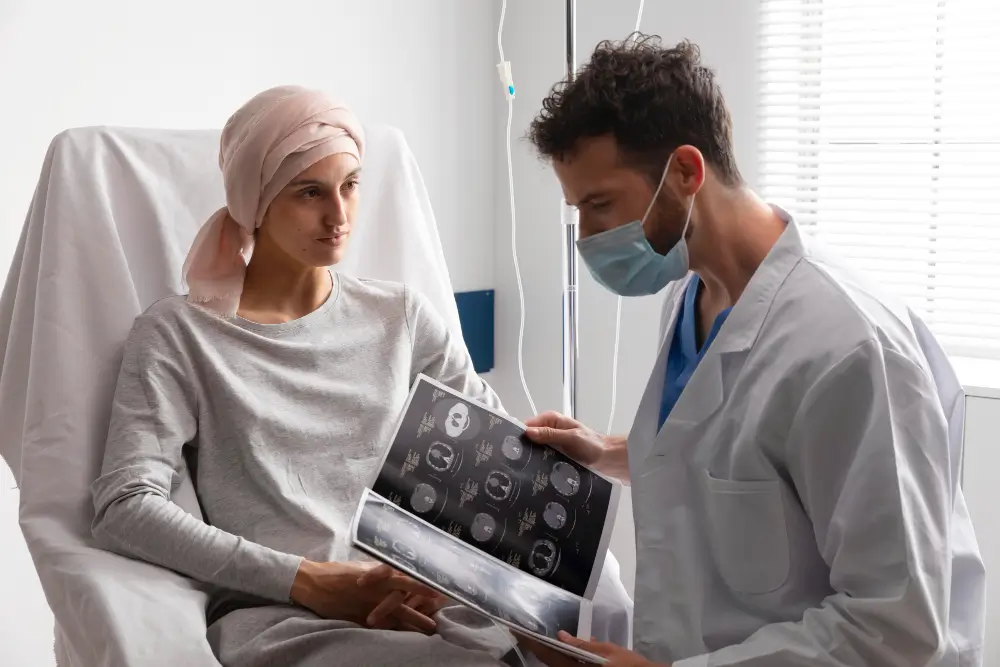Neuroendocrine cancers (NECs) are uncommon tumors that originate from neuroendocrine cells, which are specialized cells present throughout the body that release hormones in response to nerve signals. Because these tumors can arise in a variety of organs (such as the pancreas, lungs, or gastrointestinal tract), they can be difficult to diagnose. Often, symptoms are nonspecific or vague and typically increase slowly, resulting in a delay in diagnosis. A thorough and systematic diagnostic process is key to early detection and determining the appropriate therapy. In this article, we will discuss in detail the diagnostic techniques for rare neuroendocrine cancer.

What Are Neuroendocrine Cancers?
Neuroendocrine cancers are a heterogeneous group of tumors that can be benign (non-cancerous) or malignant (cancerous). They may also be functional neuroendocrine tumors, and therefore, may be hormone-secreting, producing different symptoms based on location and hormone activity. For example, a functional neuroendocrine tumor in the pancreas might secrete insulin, causing low blood sugar, while a functional neuroendocrine tumor in the intestines might secrete serotonin, causing diarrhea or flushing. Many patients are diagnosed late due to the slow-growing nature of neuroendocrine tumors and nonspecific symptoms associated with neuroendocrine cancers.
Initial Clinical Assessment
Mostly, the diagnosis starts with a review of the medical history and physical examination. Doctors evaluate symptoms like unexplained pain, changes in digestion, or imbalances in hormones. They also consider family history and any existing medical issues, since some inherited syndromes, ranging from MEN1 (Multiple Endocrine Neoplasia type 1), can increase your risk for neuroendocrine tumors.
Laboratory and Biomarker Tests
Biochemical tests allow the evaluation of abnormal hormone production and tumor markers of neoplastic syndrome in blood and urine. The most common testing includes:
- Chromogranin A (CgA): A tumor marker that is elevated in a variety of neuroendocrine cancers.
- 5-HIAA (5-hydroxyindoleacetic acid): This urine test is utilized to find a specific class of serotonin-secreting tumors, most commonly carcinoid tumors.
- Hormone-Specific Testing: Depending on the symptoms, tests may also measure levels of insulin, gastrin, or cortisol to determine if a variant of the neuroendocrine tumor is secreting a hormone.
These tests will provide important evidence for a neuroendocrine cancer tumor presence and they may continue to be important for the next imaging or evaluation.
Imaging Studies for Detection and Staging
Imaging plays a crucial role in locating the tumor and the extent of disease. Common imaging protocols can include:
- CT Scan or MRI: Allows internal imaging of organs to see and assess the size and shape of the tumors.
- PET-CT Scan (with Gallium-68 DOTATATE as the tracer): This is a specialized scan that can identify somatostatin receptor activity, making this a very specific imaging for neuroendocrine tumors.
- Endoscopic Ultrasound (EUS): It is especially used to locate pancreatic or gastrointestinal neuroendocrine tumors and is able to procure a fine needle biopsy.
These modalities will diagnose the presence of a tumor and assist in both staging and treatment.
Biopsies and Pathology
As per neuroendocrine tumor surgeon, The biopsy is the remaining “gold standard” for the diagnosis of neuroendocrine cancers. Biopsy samples are obtained either through endoscopy, surgery, or image-guided needle aspiration. A pathologist will look at the sample biopsy under the microscope to diagnose the cell type, tumor grade, and Ki-67 index, which will measure the aggressiveness of the cancer.
Further, immunohistochemistry stains for specific proteins, including synaptophysin and chromogranin, will establish the neuroendocrine origin of the tumor.
If you are looking for the best neuroendocrine cancer specialist, or the best neuroendocrine tumor doctor, Sohana Hospital might just be the best option for you. Sohana Hospital Mohali is home to the World’s most advanced diagnostic technology and North India’s most trusted and experienced Cancer Specialists who provide the most comprehensive and holistic care for cancer patients. With your determination and the expertise of the doctors, cancer can be conquered!
